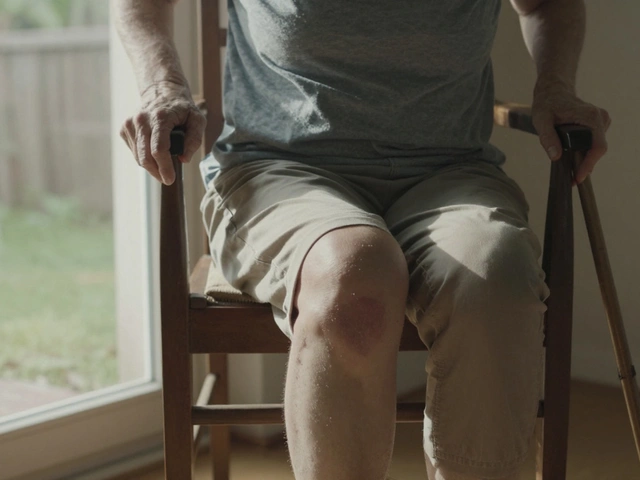A lot of people wonder if the body can bounce back after chemo, or if some damage is permanent. This article breaks down what really happens inside you after treatment ends, which changes can heal on their own, and which ones might stick around. You'll also find tips for making recovery smoother and signs to watch for if things don’t feel quite right. This isn’t just medical jargon, but practical info from real experiences. Read on if you or someone close to you has questions about life after chemo.
Read MoreChemotherapy Recovery: Real‑World Tips to Feel Better Faster
If you’ve just finished a round of chemo, the first thing on your mind is probably how to get back to “normal.” The truth is, recovery isn’t a one‑size‑fits‑all thing, but a handful of daily habits can make a huge difference. Below are simple steps you can start right away, no fancy equipment or pricey supplements required.
Nutrition & Hydration: Fuel Your Body the Right Way
Chemo can leave you feeling nauseous and drained, so keeping your stomach happy is crucial. Aim for small, frequent meals instead of three big ones. Think a banana with a spoonful of almond butter, a bowl of warm soup, or a protein‑rich smoothie with spinach, Greek yogurt, and a dash of ginger.
Protein helps repair tissue, so include beans, lentils, eggs, or lean meat whenever you can. If you’re vegetarian, soy products and quinoa are great alternatives. Don’t forget healthy fats—avocado, olive oil, and nuts keep calories up without feeling heavy.
Hydration matters just as much as food. Chemotherapy often pulls fluids from your cells, leading to fatigue and headaches. Sip water throughout the day; a glass every hour is a good rule of thumb. If plain water feels boring, add a slice of lemon, cucumber, or a splash of coconut water for flavor and electrolytes.
Managing Pain and Fatigue: Simple Strategies That Work
After chemo, aches and tiredness are common, but you don’t have to just endure them. Gentle movement—like a short walk, stretching, or a beginner yoga video—keeps blood flowing and reduces stiffness. Start with five minutes and add a minute each day; you’ll be surprised how quickly your energy improves.
Pain control doesn’t always mean stronger meds. Warm compresses on sore muscles, a warm bath, or a heating pad can ease tension. For nerve‑related pain, try a cool pack instead. Alternating hot and cold helps some people find relief.
Sleep is your body’s natural repair tool. Create a bedtime routine: dim lights an hour before bed, avoid screens, and consider a calming tea like chamomile (if your doctor says it’s safe). Keep the bedroom cool—around 18‑20°C—and use a comfortable pillow that supports your neck.
Mind‑body techniques also cut down on stress‑induced pain. Simple breathing exercises—inhale for four counts, hold for four, exhale for six—can lower cortisol levels and make you feel more relaxed. Even five minutes a day can shift how you experience fatigue.
Lastly, don’t ignore emotional support. Talking to a friend, joining a local cancer survivor group, or using a mental‑health app can lift your mood and give you practical coping ideas. A positive outlook isn’t a cure, but it does make everyday tasks feel less overwhelming.
Putting these tips into practice won’t magically erase all side effects, but they give your body the tools it needs to heal faster. Remember, listen to your body—if something feels wrong, reach out to your oncologist or a qualified health professional.
Recovery after chemotherapy is a marathon, not a sprint. By staying hydrated, eating smart, moving gently, and caring for your mind, you set a strong foundation for a smoother comeback. Take it one day at a time, celebrate small wins, and keep the focus on what you can control. You’ve fought hard through treatment—now give yourself the same determination to bounce back.





